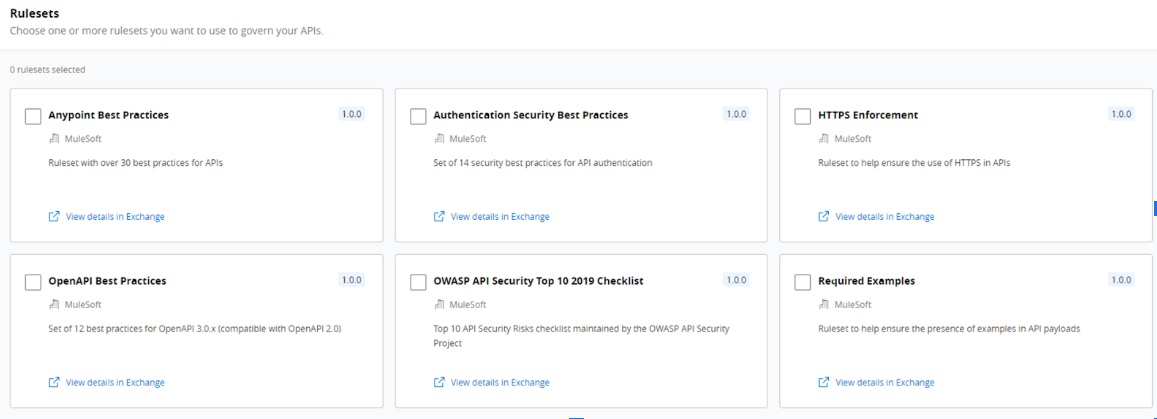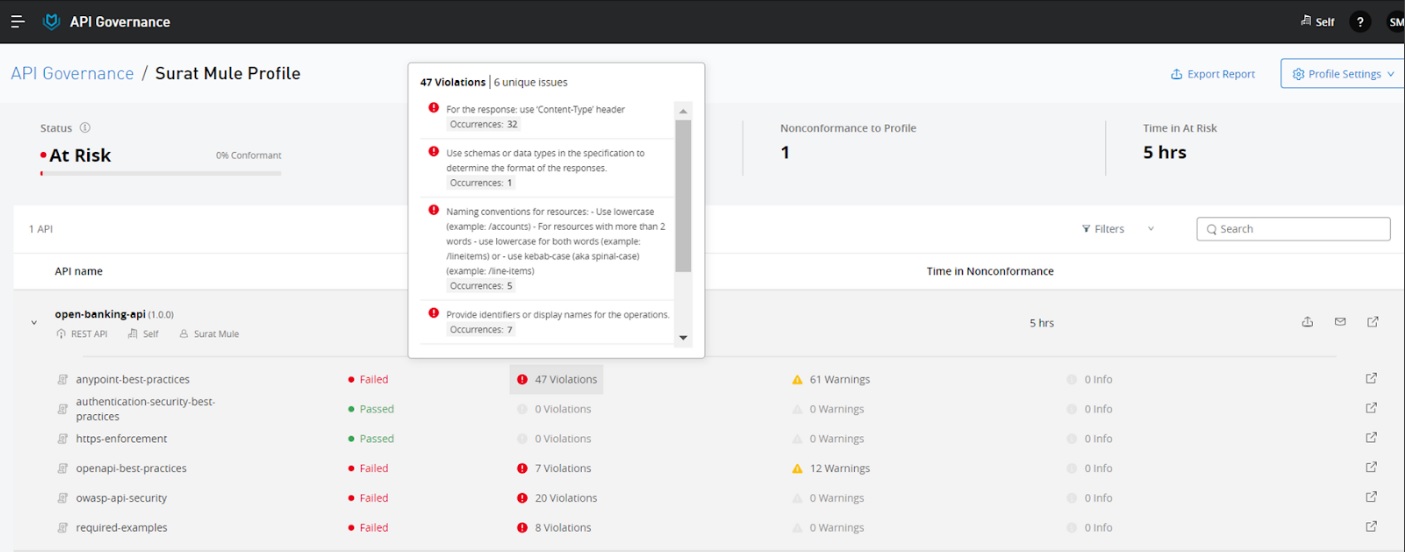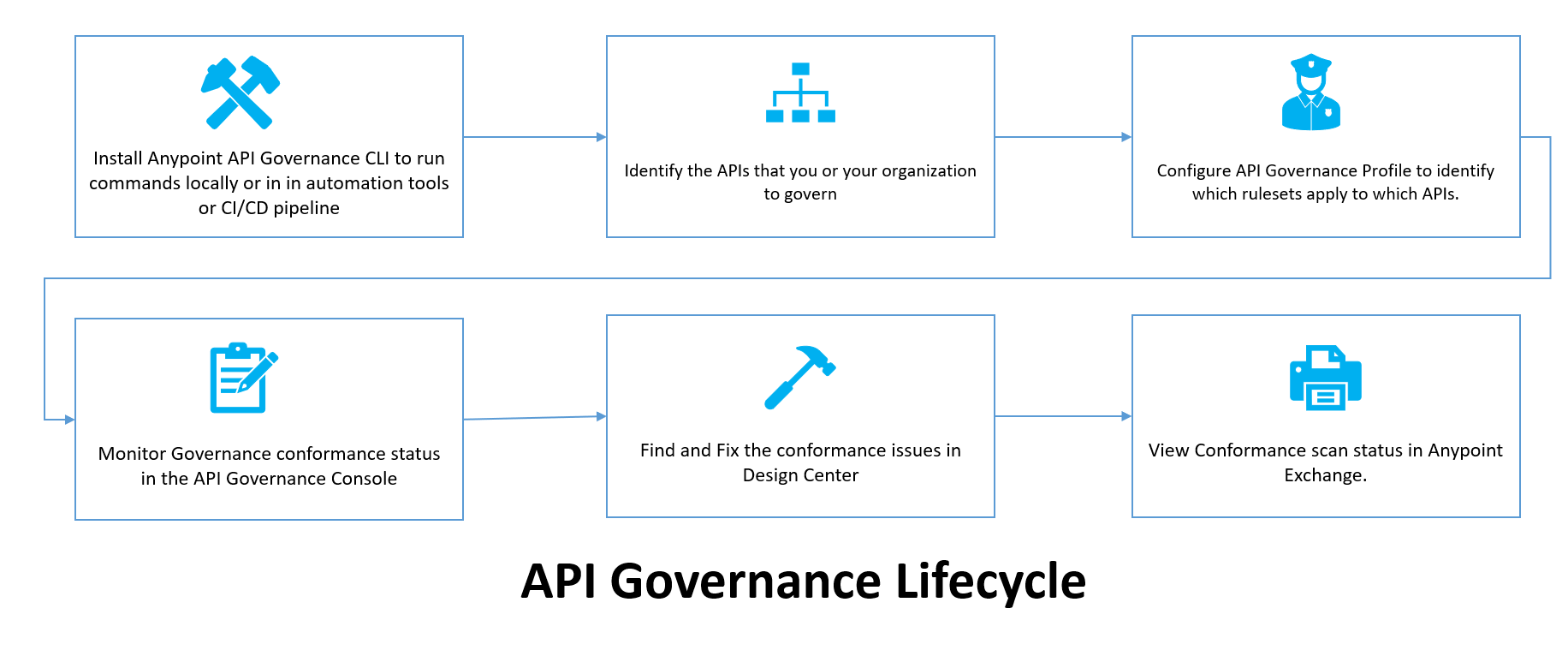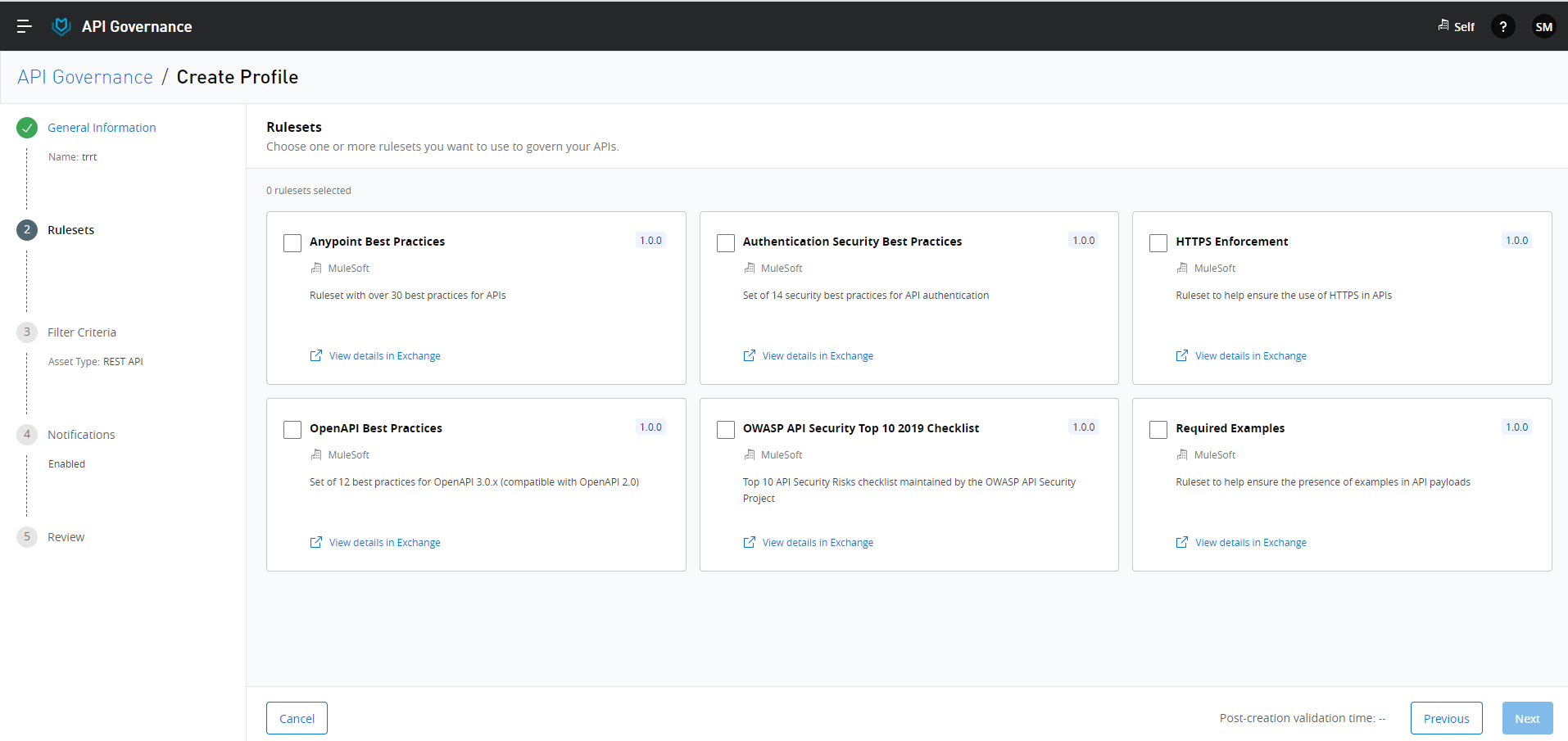Ensure API Consistency and Security With Anypoint API Governance
In this article and video tutorial, learn more about MuleSoft's recent introduction of API Governance as a part of the Anypoint Platform.
Join the DZone community and get the full member experience.
Join For FreeAs we all know, MuleSoft has released various components as a part of the Anypoint Platform, and API Governance is one of them. The release of the API Governance will help the IT team to produce APIs with Anypoint API best practices, OpenAPI best practices, and Top 10 OWASP security. Additionally, this release will help maintain API consistency across the organization and ensure design time conformance of the APIs.
MuleSoft provides out-of-box rulesets and creates custom rulesets per your organization's needs and requirements. This will avoid managing the guidelines and standards in siloed documents. Below is a list of default rulesets that come as a part of API Governance.
- Anypoint Best Practices
- Authentication Security Best Practices
- HTTPS Enforcement
- OpenAPI Best Practices
- OWASP API Security Top 10 2019 Checklist
- Required Examples

In an API Governance Console, you can add governance rulesets to your governance profiles. This will apply governance rulesets to multiple APIs within the organization. The API Governance console also provides an overview of conformance report for all your validated APIs. Additionally, it will also monitor and send notifications to developers about API conformance.

API Governance Lifecycle

Implementing API Governance for the APIs
The first step for creating the API Governance is to Create the Profile in the Anypoint Platform API Governance. Select what rulesets you need to enable for that profile. You can also add filters and notifications. The filter will ensure which APIs need to scan against the profile that we have created. Notifications will generate an email to the developer in the case the APIs haven't been designed according to the rulesets associated with the profile. It will be marked as a Non-Conformant. There are three statuses maintained for your APIs as part of the API Governance:
- Not Validated - API is not validated against the API Governance profile.
- Conformant - API has satisfied the rulesets that were associated with the profile.
- Non-Conformant - API has not satisfied the rulesets that were associated with the profile.

API Governance: Benefits
Enable developers to apply governance rulesets at design time. Benefits include the following:
- Produce consistent API specs across the enterprises
- Improved API Quality and Security
- API design with Anypoint Best Practices and OpenAPI Best Practices
- Ensure Design-Time conformance
- Reduce Top 10 OWASP security risks
Conclusion
MuleSoft has recently introduced API Governance as a part of the Anypoint Platform. This enables you to apply governance rulesets to your APIs, ensuring API Consistency, and providing several default rulesets such as a Top 10 OWASP API Security, Anypoint API Best Practices, OpenAPI Best Practices governance rulesets, etc.
API Governance will ensure the APIs design across the enterprises is consistent, that it is designed with API Best Practices and Guidelines, and ensure the API Security and improve the quality of APIs.
Opinions expressed by DZone contributors are their own.

Comments